
This is TheSchoolHouse302 monthly #review&reflect, wrapping up our focus on Goal Setting.
Skills I need…
How do I write goals that are clear, precise, and capture what I truly want to achieve?
Review: This month we anchored goal setting within three fundamental techniques to ensure that the goals you set are attainable and that they represent what you truly want to achieve. Each area adds an element to goal setting that makes your goals clearer by eliminating vague and uncertain language, carving out appropriate time to spend on developing the goals, and physically writing them down for clarity so you have a daily reminder of what is important to you.
Goal setting is not an easy task. We all have ideas around what we want or things we would like to achieve, but once we sit down and truly try to identify them we often hit mental roadblocks. There are a variety of reasons for this but doubt, fear, and uncertainty are three big goal setting crushers. Each one undermines what we want to achieve and too often our efforts to reach our burning desires only leads to mere luke warm wishes. Each strategy we define is simple, not to be confused with easy, but absolutely doable. They compliment and serve one another so that if you follow them your chances of developing clear attainable goals is much greater.
The model is straightforward and is designed to lead you through a creative process. The first step is to be specific. This sounds straightforward but not when our goals pertain to things that aren’t difficult to quantify and deal more in the self development or growth oriented realm. For example, if you say I want to lose 10 pounds within 5 weeks, which is two pounds a week, you are being specific, clear, and definitive. You can then even move onto identifying behaviors, such as the dos and don’ts of what to eat and what not to eat. But what we find within ourselves and working with others is that many of the goals people set are actually not as clear as this, making them much harder to define, such as I want to be less stressed at work, or I want to earn a promotion, or, as a mother I want to be a better role model for my kids. These types of goals can, at first glance, appear to be more difficult for setting specific targets. However, we contend that it can be just as easy if you are willing to be specific at deconstructing the goal by identifying what the outcome truly looks like, what behaviors support the goal, and what evidence lets you know that you are making progress. Lastly, a critical aspect of specificity is in determining exactly how you know that you’ve attained your goal. What we find interesting with goal setting is that goals, like losing 10 pounds, are specific, but don’t always reflect the real desires we have when setting goals like this. Yes, it’s quantifiable, but it is an outcome of something greater. Suppose that goal is tied to living a healthier lifestyle, which is tied to spending time with a ball with your children outdoors. As such, real specificity takes reflection.
The second key feature is finding time. The reality is that if your goal is something you truly want to accomplish, you will find the time. However, life is filled with unexpected issues that can hijack your best laid plans. So do yourself a favor and evaluate your days and weeks to eliminate any time wasters and activities that do not support your overall goals. This is tough to do because many people fear cutting things out and are hesitant to evaluate time in this way. This falls back to commitment and the reason why we spend so much time on specificity. All of us have a unique way of finding time for the things we truly want to do. If your goals are things that you truly desire to achieve, you will need to, as John Maxwell says, “…give up to go up.”
Our third strategy delves into the mental side of the goal setting equation. If you are serious about your goals, you need to write them down and review them frequently. We advocate having them in your journal and reflecting on them at the beginning and end of each day. The science is simple: when you read your goals and take time in your day to recommit to what you want to achieve, you have a much better chance of aligning your actions and decisions with them. As Earl Nightingale stressed many years ago, we are always moving in the direction of our dominant thoughts.
For success in reaching your goals, it’s imperative to implement all three.

Reflect: Each aspect of the model is critical for overall success and maximum effectiveness. While reviewing and considering each point, which one do you need to fix immediately to ensure a greater chance of success? Goal setting and goal getting are two different things, and very often we lose sight of achieving our goals even when we’re good at setting them. When challenges loom, immediate gratification often presents itself in the best light. The challenge is in not succumbing to immediate needs and wants and staying true to your goals. One way to do this is to stay focused on what you want to achieve and take time to disconnect, literally. Create space in your day from technology, your phone, and other constant distractions that continually pull on us. Allow yourself the space needed for clarity and centeredness. We heard from Dr. Larry Rosen regarding how we are “easily disruptable,” how quickly our plans are derailed by a simple text message or “bing” on our phone.
As a leader, how do you create space within your day to disconnect to find clarity and get back to center?
How do I learn those skills…
What should I read to continually learn and grow if I want to set purposeful goals and achieve them?
Review: In our #readthisseries we featured the work of authors who embody both goal setting, without distraction, and goal getting through mindfulness and productivity:
The Distracted Mind by Adam Gazzaley and Larry Rosen
Force of Nature: Mind, Body, Soul, and, of course, Surfing by Laird Hamilton
Extreme Productivity by Robert Pozen
You can’t miss our #readthisseries on reaching your goals. Watch it again here.
Reflect: Do I have clarity around what I truly want to achieve to set viable goals? Do I have a routine that will enable me to focus each day on what I want to achieve? Do I create space within my day to disconnect from all the detractors and distractions? Do I possess the desire to give up things that are not leading me toward my goals? As a leader, am I setting the right example for those I lead and the the customers we serve?
Great leaders understand the power of journaling, reading, and reflecting to refine their skills to lead better and grow faster. This month reflect on yourself, your leadership team, and your organization to determine the extent that goals are anchored by the three key strategies. Based on the 3-part model, and using a 5-point scale, 1 being ineffective and 5 being highly effective, rate yourself and your team:

Who should I follow…
What does an expert have to say about goal setting and reaching your most desired outcomes in life?
Review: For our #onethingseries, we interviewed Dr. Larry Rosen, co-author of The Distracted Mind.
Throughout the interview, Larry emphasized how leaders must be aware of what their distractors are and how technology is a powerful tool that needs to be used appropriately and productively. He says that leaders need to take time to create space and to think and focus. It takes deliberate effort and strategic implementation to avoid constant interruptions. He also stressed the need to communicate face-to-face and the power of the human connection. We tie that into sharing your goals as well as the ups-and-downs that come on the journey to reaching them. Human connection is powerful.
Reflect: Dr. Rosen’s work demonstrates how our anxiety levels increase as a result of updates, texts, and other alerts through our phone.
As a leader, how can you build an environment that manages communication and recognizes the potential negative effects of constant accessibility throughout handheld devices?
That’s our #review&reflect for goal setting. Take a look back to take a step forward.
TheSchoolHouse302 is about getting to simple and maximizing effective research-based strategies that empower individuals to lead better and grow faster.
Please let us know how our leadership posts are working for you, what you are reading to improve yourself, and your thoughts on leadership and growth here on our blog and Twitter. Follow our #onethingseries podcast on iTunes and our #readthisseries on YouTube.
Joe & T.J.
Maxwell, J. C. (1998). The 21 Irrefutable Laws of Leadership: Follow Them and People Will Follow You. Nashville, TN: Thomas Nelson
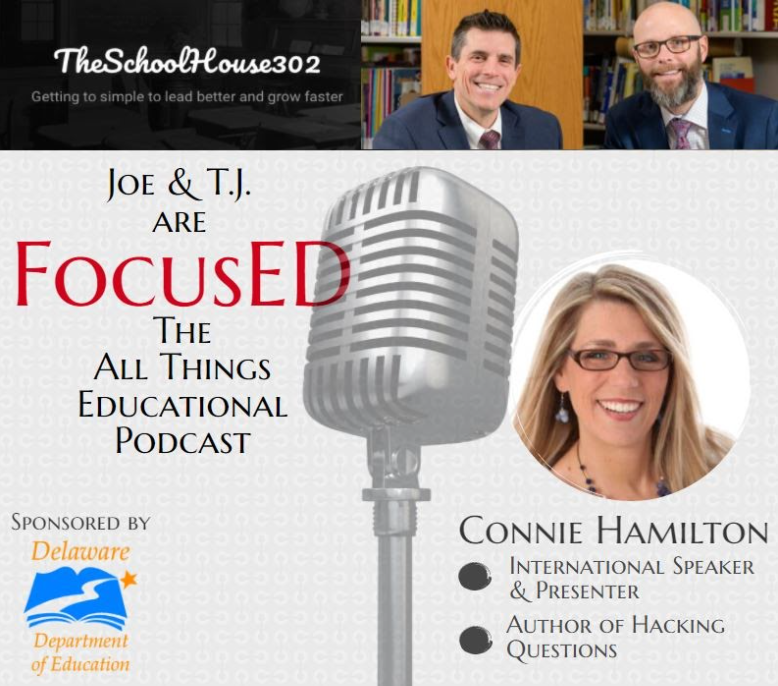
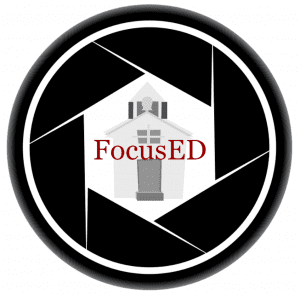

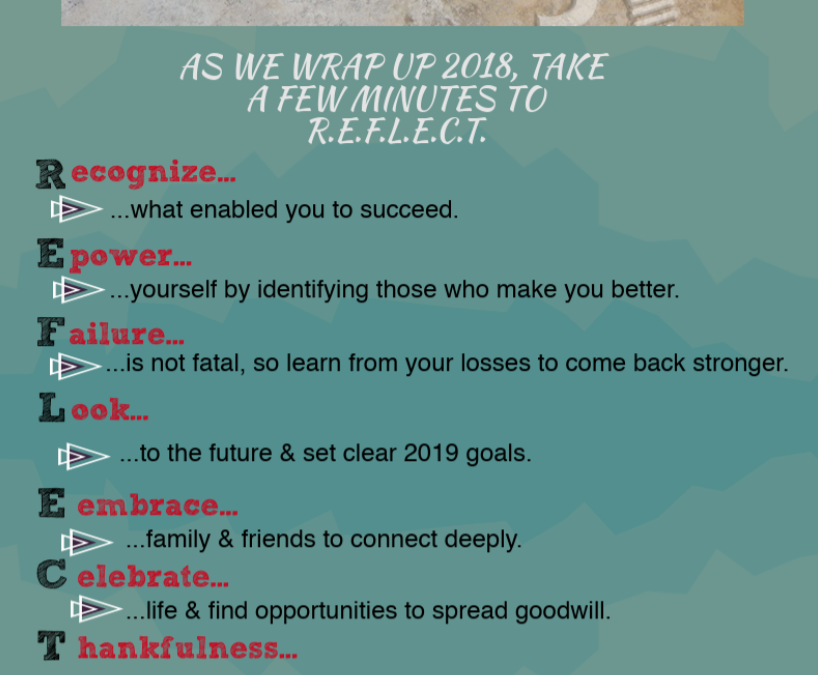
 As always, please like, follow, and comment. If you have topics of interest, guests you want us to interview, or books that we should read and recommend, please let us know that as well.
As always, please like, follow, and comment. If you have topics of interest, guests you want us to interview, or books that we should read and recommend, please let us know that as well.

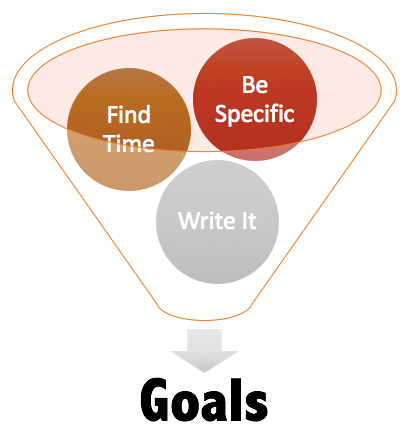

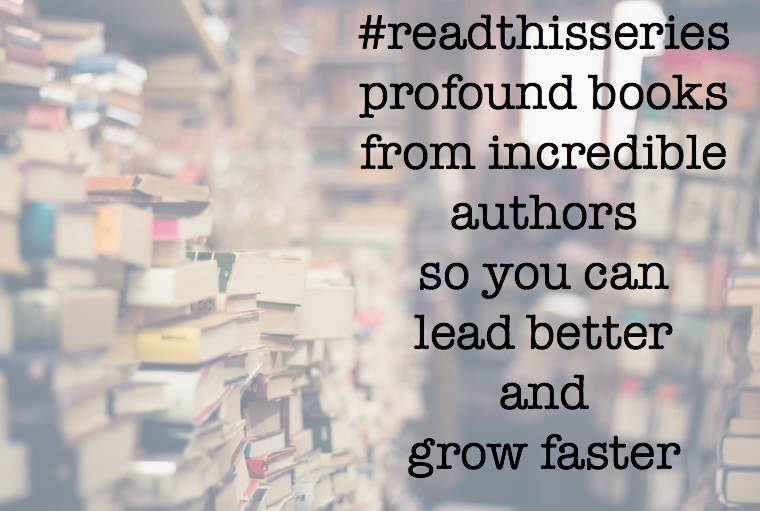

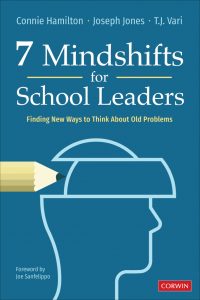 7 Mindshifts for School Leaders: Finding New Ways to Think About Old Problems.
7 Mindshifts for School Leaders: Finding New Ways to Think About Old Problems. 


